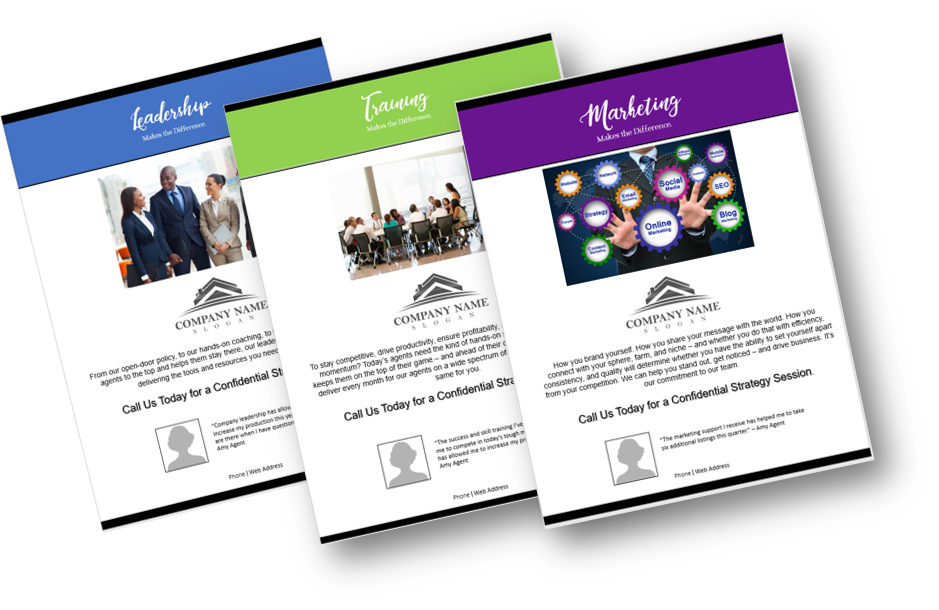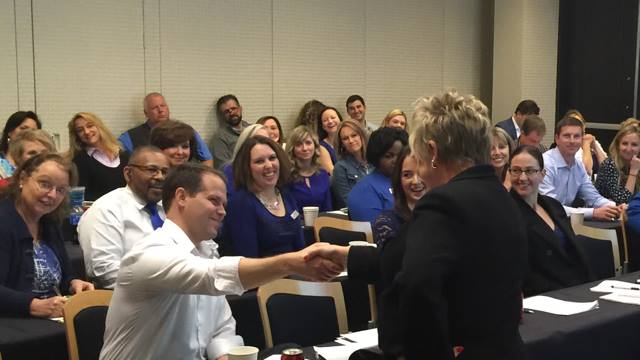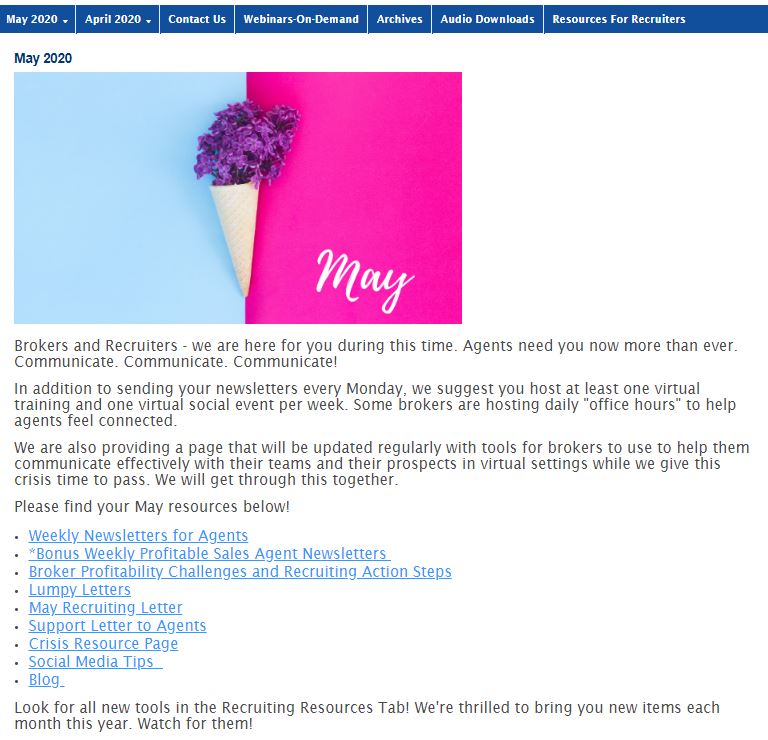Positioning Yourself for Exponential Results
By Real Estate Recruiting Coach Judy LaDeur
Bottom line? Recruiting is the lifeblood of your real estate brokerage. If you are not actively recruiting, you are on your way out of business. You can have the best team in the industry, but at some point, every agent that you have will leave. They will retire, they may get ill, and they might just get tired of working, or relocate. But for reasons out of your control, they will leave. There are many things that you can control to keep them there for as long as possible. Here are those things which you can control:
- Office Environment & Culture: The brokers I know who are excellent recruiters, also provide an exciting work environment for their agents. They are in the office to greet their agents daily, they create reasons for the agents to come into the office, they host fun events throughout the year in the office, and the office has a clean, professional look about it. Create a welcome, efficient place for your agents to network, meet clients, and impress your recruits and you’re one step ahead of your competition.
- Create a Written Profile of the Perfect Agent for Your Office: By writing down what it would take him or her to be the perfect fit for your team, your mind will actively look for people who fit your profile. Have you ever noticed that if you buy a new blue car, that suddenly you see that color and model everywhere? Once you are aware of something, your mind will point it out. The same is true for agents. When you are consciously aware of what you are looking for, your mind will also quickly discount people who do not meet your profile. You will hire more of the right agents, and fewer agents who fall short of your criteria. The time to talk about your criteria and expectations for your agents is in the interview process. Don’t be shy. During the interview say things such as “The ideal agent for our team is an agent who is looking for (quality). Our expectations of those who join our team are (expectation). The typical agent on our team averages (annual income). Those who are right for your team will make statements that confirm they meet your criteria. If you are hiring new agents, you may want a separate profile, which may encompass areas such as passion, drive, experience in other sales fields, and education. A new agent’s desire and persistence can overcome many obstacles. For experienced agents, you may want to consider things such as the time constraints each one will put on you or your staff. It seems there are always a few agents in each office that take up the bulk of the leader’s time. Your focus should be to find good people so you can replace the ones who do not meet your criteria.
- Prospecting: Once you know who you want, you next job is to find those agents and position yourself and your company to recruit them. Prospecting effectively allows you to fill your office with the kind of agents who fit your profile, which will enable you to earn more money. Prospecting can take on many forms such as direct mail, social media, face to face interaction with agents, phone calls, texting, emails and anything which will allow you to connect with the right agent for your team. Prospecting does two things: It keeps you positioned with the agents that you want until they are ready to move. It also tells you which agents are ready to make a move that day. For that reason, calling must be a daily part of your prospecting, but don’t try to recruit them over the phone. The purpose of the call is to get the interview. They can’t sign up over the phone. I am amazed at the number of brokers who do not prospect, and most prospect less than their agents do. The brokers with the most productive offices lead by example. They are always prospecting and building their business, just like they expect their agents to prospect. Are you willing to get in the mud with your troops? Are you willing to show and teach them by example the value of prospecting? Are you going to teach them through your actions what leadership is about?
- Powerful presentation: Just as your agents need to perfect their best listing presentation — you need to create a dynamic presentation which is customized to each agent. The agent needs to feel that you have a lot to offer him/her in knowledge and experience. Your presentation should be based on well-scripted questions to find their hot buttons as well as products and services that they currently need in their real estate career. The better you learn what the agent is looking for, the more powerful your presentation will be. Focus on hiring agents on value. What is the value to them in joining your team? How much more can they earn as a member of your team? Just as agents can get more listings by reducing their commission, you can always get more agents by lowering your fees or increasing your splits. Do the best sales agents reduces their fees and profits just to get more listings? NO. And the best brokers do not “buy agents”. They do, however, end each interview with an invitation to join their team, if the agent is a good fit.
Is recruiting a challenge for you? We can help. Join The Profitable Recruiter and gain access to 7 hours of training via downloadable links, hundreds of recruiting letters and notes, emails, social media contents, webinars for recruiting and retention, and opportunities to network with the best of the best.
If you’re ready to get your recruiting ON TRACK and keep it there — join today and take advantage of our 50% off special using promo code 50OFF.
Learn why brokers of every company size are making it their turn to way to stay positioned for recruiting success in today’s market — and putting the fun back into their recruiting. We’re taking the guesswork out of recruiting for brokers — and they are loving it. We can do the same for you! Questions? Email us today.






 Review your skills. Pick at least one lesson from the 7+ hours of audio training to master each month.
Review your skills. Pick at least one lesson from the 7+ hours of audio training to master each month. 







